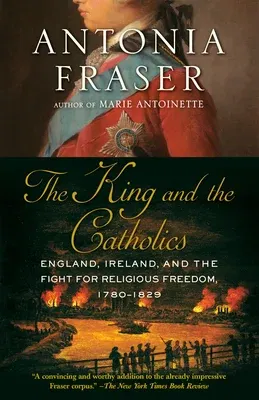Antonia Fraser
(Author)The King and the Catholics: England, Ireland, and the Fight for Religious Freedom, 1780-1829Paperback, 12 November 2019

Qty
1
Turbo
Ships in 2 - 3 days
In Stock
Free Delivery
Cash on Delivery
15 Days
Free Returns
Secure Checkout

Print Length
352 pages
Language
English
Publisher
Anchor Books
Date Published
12 Nov 2019
ISBN-10
0525564837
ISBN-13
9780525564836
Description
Product Details
Author:
Book Format:
Paperback
Country of Origin:
US
Date Published:
12 November 2019
Dimensions:
20.32 x
12.95 x
2.03 cm
ISBN-10:
0525564837
ISBN-13:
9780525564836
Language:
English
Pages:
352
Publisher:
Weight:
272.16 gm